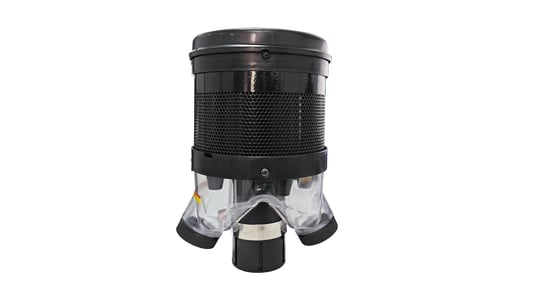The Importance of Advanced Materials in Harsh EnvironmentsAdvanced materials play a crucial role in ensuring the durability and reliability of components exposed to harsh environments. Whether it's extreme temperatures, corrosive chemicals, high pressure, or abrasive conditions, the right materials can make all the difference in preventing premature failure and ensuring optimal performance.Challenges Faced in Harsh EnvironmentsHarsh environments present a variety of challenges that can significantly impact the performance and lifespan of materials. These challenges may include oxidation, thermal expansion, vibration, mechanical stresses, and more. Advanced materials are specifically designed to overcome these challenges and maintain their structural integrity in the face of adversity.The Role of Ceramic MaterialsCeramic materials are known for their exceptional strength, hardness, and resistance to high temperatures. In harsh environments where conventional materials may fail, ceramics offer superior performance and reliability. Their unique properties make them ideal for applications such as aerospace components, industrial machinery, and medical devices.Understanding the Benefits of Composite MaterialsComposite materials, such as carbon fiber and fiberglass, offer a combination of strength, lightweight, and corrosion resistance. These materials are increasingly used in harsh environments where weight savings and durability are essential. Their versatility and customizable properties make them a popular choice for a wide range of industries.High-Performance Metals for Extreme ConditionsHigh-performance metals, such as titanium, nickel alloys, and stainless steel, are often the material of choice for challenging environments. These metals exhibit excellent mechanical properties, high temperature resistance, and superior corrosion resistance, making them suitable for applications in aerospace, defense, and oil & gas industries.Benefits of Polymer-Based MaterialsPolymer-based materials offer a unique combination of properties, including flexibility, chemical resistance, and low friction. In harsh environments where traditional materials may degrade, polymers provide a cost-effective and durable solution. They are commonly used in seals, gaskets, bearings, and other critical components.The Evolution of Advanced CoatingsAdvanced coatings play a vital role in protecting materials from harsh environments by providing an additional layer of defense against wear, corrosion, and abrasion. These coatings can significantly extend the lifespan of components exposed to extreme conditions, resulting in cost savings and improved performance.Emerging Trends in Advanced Material TechnologiesAdvancements in materials science continue to drive innovation in the development of Advanced Materials for Harsh Environments. From nanomaterials to biomimetic materials, researchers are exploring new ways to enhance the performance and durability of materials in extreme conditions. These emerging technologies hold great promise for the future of material science.Applications of Advanced Materials in Harsh EnvironmentsAdvanced materials find applications in a wide range of industries, including aerospace, automotive, energy, and electronics. Whether it's improving the efficiency of solar panels, enhancing the durability of wind turbine blades, or increasing the safety of medical implants, advanced materials are transforming the way we design and engineer products for harsh environments.ConclusionIn conclusion, advanced materials are essential for overcoming the challenges posed by harsh environments and ensuring the reliability and performance of critical components. From ceramics to composites, metals to polymers, the right material can make all the difference in withstanding extreme conditions. As technology continues to evolve, the future of advanced materials looks promising for creating innovative solutions that push the boundaries of what is possible in harsh environments.Quote Inquirycontact us










